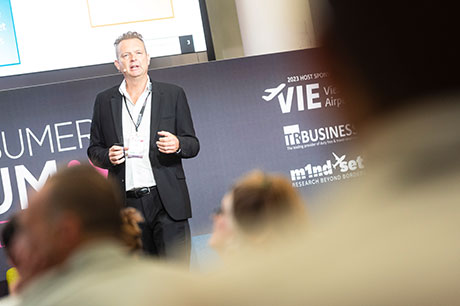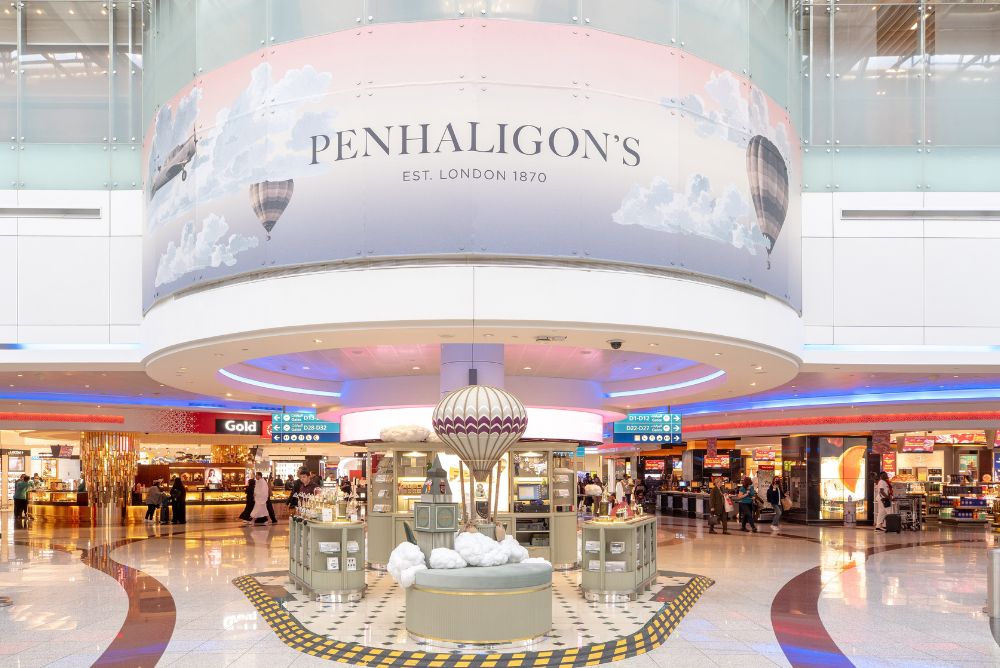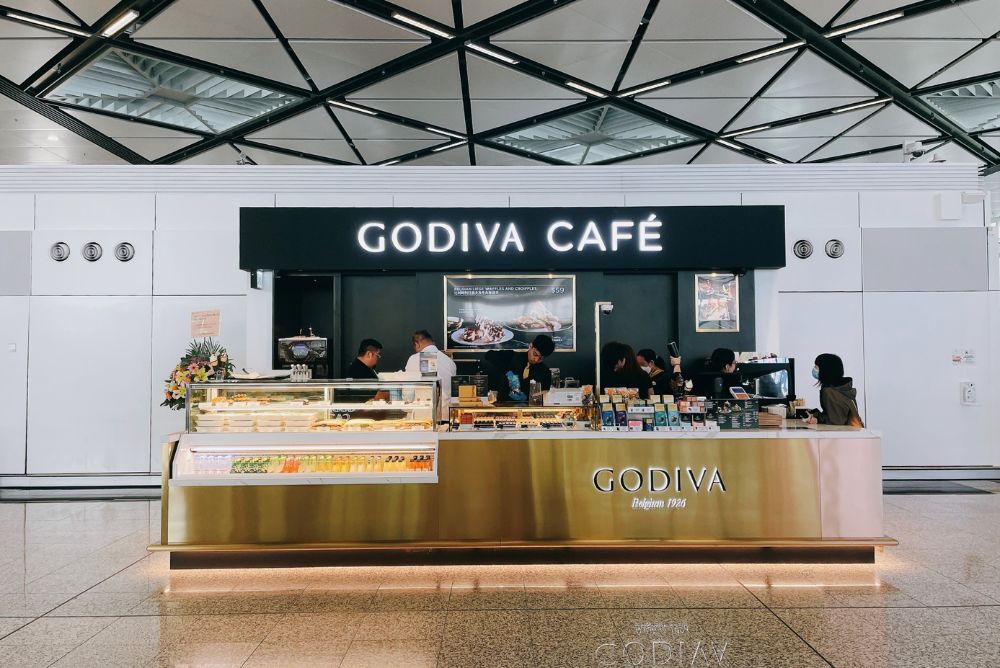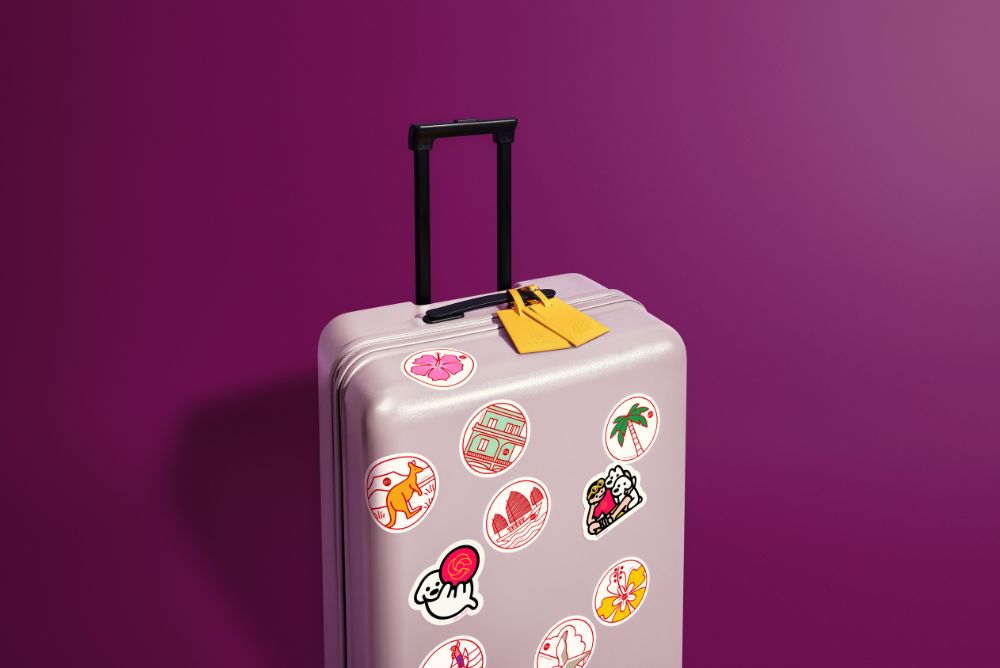Take more risks with brands, leading travel retailers told
By Luke Barras-hill |

BBC World’s HARDtalk Presenter and TFWA Conference moderator Stephen Sackur quizzed panellists on their notions of industry development.
Global travel retail has been challenged to become less ‘risk-averse’ when it comes to investing in new brands.
In a frank and direct panel discussion during this week’s TFWA World Conference, moderator and BBC HARDtalk Presenter Stephen Sackur questioned a powerful lineup of senior executives from King Power International Group (KPIG), Dufry Group, Gebr. Heinemann and Lagardère Travel Retail on the state of today’s industry and its future journey.
Responding directly to the assertion that travel retailers do not take enough risks when it comes to listing new brands to grow industry revenues, Dag Rasmussen, Chairman and CEO, Lagardère Travel Retail said the firm does introduce many new ones, but there remains a problem with the ‘flexibility’ of being able to launch these in a way that tallies with the conventional business model.
‘BE MORE OPEN’
Pushed by Sackur to be more open to new brands and to take risks, Rasmussen countered: “I have an open mind, but when you pay more rent than the gross margin that rent can give, I don’t see the business model.
“We need to discuss this if we wish to increase the pie. Through partnerships and discussions we are able to do it. If we look at the airports, there are lots more brands than there used to be.”
Gebr. Heinemann Co-Owner Claus Heinemann said the sheer volume of exhibitors and their investments at the TFWA global summit every year reinforces the commitment many have in the buying power of the channel.
In a thought-provoking session, Sackur began by asking the panellists to share opinions on their respective businesses.

Dufry CEO Julián Díaz made a series of compelling arguments on the current and future opportunities in DF&TR while dispelling the notion that a ‘golden age’ in the trade is over.
Dufry CEO Julián Díaz admitted that while on the face of things, organic growth of +7.5% in 2017 was positive for the DF&TR behemoth, he was ‘not happy’ with the current state of play.
“In a global environment, travel retail is playing a specific role in terms of the balance between regions – political and economic impacts and social events that may impact the number of travellers. [Yet] I still feel we are a way away from being globally efficient in terms of good operational behaviour. There is real room for improvement.”
Susan Whelan, Senior Executive Vice President of KPIG was in more positive mood, stating that although challenges such as the threat of online exist, there is significant growth potential to be achieved through diversifying activities against the backdrop of rising pax volumes.
Asked directly by Sackur whether KPIG is looking to diversify its global presence outside Thailand, Whelan would not be drawn, merely stating: “We always look at the opportunities in terms of what is a good fit for us; we’re always up for the challenge.”
In a similar train of thought and rejecting the notion put to him that European DF&TR growth was not as ‘dynamic’ as that of Asia, Claus Heinemann said: “If we compare our industry with the domestic market… supermarkets, department stores… it is fantastic development. We are used to double-digit growth and this may not happen in the future, but in general it is a very stable industry.
“We as a company are not only retailers, we are distributors and one of the big channels is the ferry and cruise ship business. We’ve learned so much in the airport business that we can transfer to the cruise [retail] business. They are waiting for us.”
While conceding that lifting SPH is getting trickier, the general prognosis was ‘very positive’.
He said that despite changes in the passenger mix, whether it be with low-cost customers spending less, overall volumes are rising and the market continues to display dynamism.
Challenged on the fact that travel retail growth and sales in absolute terms is being massaged by an over inflation in total passenger numbers, Rasmussen disagreed, pointing to the mix effect of aforementioned low-cost and/or duty paid customers that may temper higher spends per head.
“If you look at the fundamentals, the business is growing and [that is] thanks to the brands and what we bring,” he said.
‘GOLDEN AGE’ OF DUTY FREE OVER?
Sackur then asked the panel if they thought the ‘golden age’ of duty free was over, which prompted some interesting responses.
Díaz played down the use of the phrase, believing that future opportunities to grasp the potential of the business and new consumers exist today.

Delegates heard a series of earnest, forthright and – at times – provocative views from an assembly of leading travel retail leaders: Dufry Group, King Power, Gebr. Heinemann and Lagardère Travel Retail.
Accordingly, these will help amplify relationships within the so-called ‘Trinity’.
“Is travel retail today in a better position than any other retail channel?” he asked. “The answer is yes. We have different marketing tools that the high street cannot use. We have the captive audience, specific products and limited editions and many other activities […].
“We are the only channel that can engage with the customer in a different way, combining the physical presence with technological engagement. For travel retail, we are not only retailers or digital companies. We combine both values in an exclusive channel that competes with online and retail in a different way.”
Pressed by Sackur on the threats of digital retail and an apparent watering down of price competitiveness in DF&TR, Whelan stressed the importance of remaining relevant to the brands and offers to the consumers.
Taking ownership of the entire passenger journey, particularly pre-arrival at the airport, remains important, she maintained.
The conversation then shifted to comments made by outgoing TFWA President Erik Juul-Mortensen in an earlier address regarding the breakdown of the Trinity.
Sackur put to the panel the suggestion that stakeholder interests within this tripartite do not coincide.
Rasmussen reminded Sackur of the importance not to generalise when talking about the matter.
“Some brands are great, very co-operative on travel retail-specific launches and products, some airports have interesting contracts… we used to have minimum guarantees and spend per passenger, which were there to protect airports and retailers, respectively, against falls in traffic.”
TENDERS ‘MORE DANGEROUS’
Rasmussen stated that today, minimum guarantee per passenger is just one mechanism used, which doesn’t always work due to stiffened purchasing linked to the rise in more meagre-spending low-cost carrier passengers.
“The cake is growing, [but] not as fast as it should be to sustain the business model,” he said.
The Lagardere Travel Retail Chairman and CEO would not reveal ‘problem’ airports when asked by Sackur to disclose examples that illustrate challenges in the business.
Claus Heinemann also played his cards close to his chest, reminding Sackur that as a family-owned firm, it has no obligation to disclose its ‘secrets’.
“We have very good airports but also some loss-making airports,” he admitted. “International tenders are more and more dangerous, as overbidding is a big subject, no question. This is why more and more partnerships might be a solution to this as the airport understands the challenges.”
Díaz stressed that Dufry’s approach over the years has been to convince airports that a solution based on set revenue plus minimum annual guarantees does not ensure a sustainable business.

Above: Susan Whelan, Senior Executive Vice President, King Power International Group alongside Gebr. Heinemann Co-Owner Claus Heinemann.
A model based on shared revenue and profit with a different relationship between retailers and landlords, Díaz suggested, could be one solution.
“What is happening around us is very fast and it will impact us if we don’t react in the proper way,” he said, adding that travel retail has an advantage in competing with the challenge of online and the Internet, but needs to react.
TFWA Managing Director John Rimmer then fielded selective questions to the panel submitted by the audience via the association’s interactive app.
One centred on the importance of staying relevant and how travel retailers were ensuring that commitment in dealing with passengers.
SOCIAL MEDIA: BRANDS ‘SLOW TO THE TABLE’
Reinforcing the ‘experiential’ element of the journey was highlighted by the panellists, but Whelan reminded the audience that the question is in fact about taking ownership of the entire traveller journey.
“If you look at Amazon and others, they are taking control of that process from A-Z, whereas we (travel retail) haven’t and don’t have ownership of our passengers. As we all recognise, this is a threat. Before they come to the airports they are being bombarded with online retailers.”
Engagement with the passenger from the moment they pack their bag is essential, Díaz concurred.
Firstly, he says the industry is accumulating know-how about consumers in its shops. Secondly, it is influencing the passengers while they are in the shops, which in part is down to digital technologies.
An omni-channel strategy covers communication, mobility, connectivity and adaptability, Díaz went on to say.
In an interesting admission, he said that fulfilling the need for good content available on social media is made challenging by brands being too slow to act.
“We are ready – we are asking the brands to participate and we need to do this altogether. This is an important part to create the glamour and standard of travel retail in the future.”
A FUTURE ‘FIT FOR PURPOSE’?
Sackur concluded by posing an important question: how will things look in 2030?
Rasmussen said the iPhone didn’t exist 12 years ago and therefore the industry needs to be careful in predicting the future.
“What I do think is it is an industry that will be much greener; we want to and have to take into account the impact on the planet as there is a harder push on travel and over-tourism. It will be more convenient and impulsive.”
Díaz said the business will be different, a combination of high-street and online but with its usual captive audience.
“This will only be possible if all the stakeholders in the business are aligned in order to understand and engage with customers,” he opined. “I would like Dufry to be a global travel platform, with local implementation in each of the airport locations.”
Asked if Dufry would consider buying any of the travel retailers represented on the panel, he said: “Acquisition is opportunistic; you never say no, you never say yes, depending on the circumstances.”
Sharing his thoughts on the future, Claus Heinemann said: “Traditional retailing at airports will remain, but of course there will be a lot of change. We pay a lot of money for the great locations that we get from the airports.”
He drew the comparison in the tobacco market between the prospect of a smoke-free future levelled by prominent players today and threats of an outright ban on tobacco 10 years ago, which failed to materialise.
“I have a more positive view on tobacco and it will remain,” he asserted. “It is a substantial margin driver, a profitable product and brings other trades into our shops.”
Whelan concluded: “We have to be quick, nimble and agile; our shops are going to look a lot different. We need to own the consumers wherever they are, wherever they are going – they need to be ours.
“Some of the brands have been very good at that. For us as operators, even if it means collaborating with each other more – that needs to happen. Someone needs to take charge.”
Alcohol insights: Conversion up, spend down in Q4
Conversion of visitors in the alcohol category in duty free has risen to 54% in Q4 2023,...
Men buy and spend more in travel retail says new research by m1nd-set
Men have a higher conversion rate and spend more when shopping in travel retail, says new...
Saudia Arabia's KKIA unfurls T3 duty free expansion
King Khalid International Airport (KKIA) has unveiled the first stage of its much-vaunted duty...
-
 International,
International,Alcohol insights: Conversion up, spend down in Q4
-

-
 International,
International,Saudia Arabia's KKIA unfurls T3 duty free expansion

In the Magazine
TRBusiness Magazine is free to access. Read the latest issue now.

 Trbusiness. The travel retail Trbusiness. The magazine for global retail and duty free professionals.
Trbusiness. The travel retail Trbusiness. The magazine for global retail and duty free professionals.






















